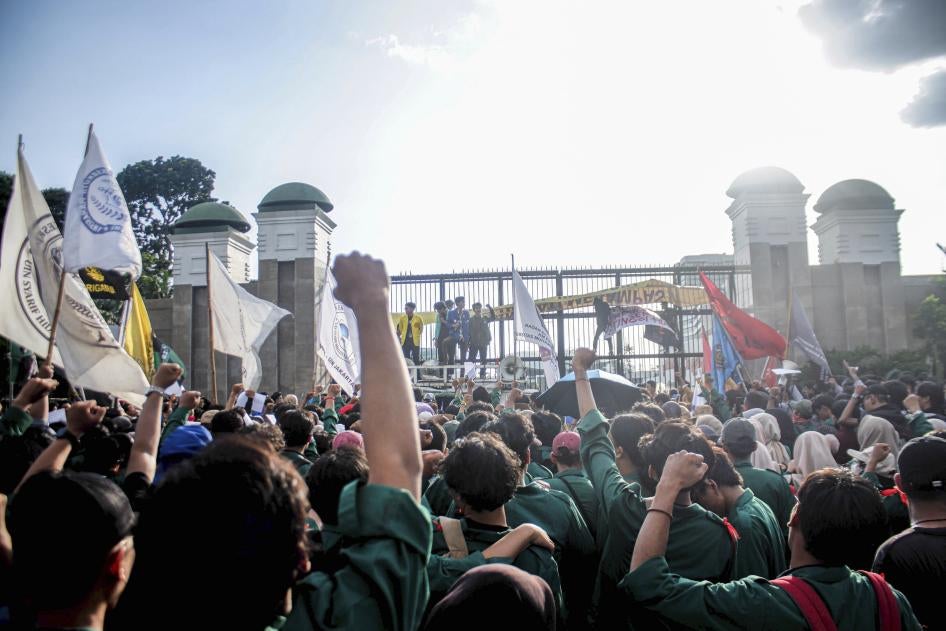(Jakarta) – Indonesia’s new criminal code puts at risk the basic rights of millions of people in the country, Human Rights Watch said today in its World Report 2023. Populations already marginalized, including women and girls, lesbian, gay, bisexual and transgender (LGBT) people, and religious minority communities will be particularly affected.
“The new Indonesian criminal code plays into the hands of government officials who want to curtail freedom of religion, privacy, and expression,” said Elaine Pearson, Asia director at Human Rights Watch. “President Joko Widodo should take forceful action so that the criminal code and hundreds of discriminatory local regulations in Muslim-majority Indonesia don’t violate the rights of the country’s religious minority communities.”
In the 712-page World Report 2023, its 33rd edition, Human Rights Watch reviews human rights practices in close to 100 countries. In her introductory essay, acting Executive Director Tirana Hassan says that in a world in which power has shifted, it is no longer possible to rely on a small group of mostly Global North governments to defend human rights. The world’s mobilization around Russia’s war in Ukraine reminds us of the extraordinary potential when governments realize their human rights obligations on a global scale. The responsibility is on individual countries, big and small, to apply a human rights framework to their policies, and then work together to protect and promote human rights.
On December 6, 2022, Indonesia’s parliament passed a new criminal code that makes consensual sex or cohabitation outside of marriage a criminal offense. The law permits intrusions into the most intimate decisions of individuals and families, violating the right to privacy. The blasphemy chapter has been expanded from one to six articles, and for the first time includes an article that makes apostasy – leaving a religion or belief – a criminal offense. Legal challenges are being prepared against some of the law’s most problematic provisions. The law has a three-year transition period before coming into effect.
During the year, many Muslim groups targeted minorities with threats and intimidation, using hundreds of discriminatory regulations including the blasphemy law, yet the government did little to protect such vulnerable groups. Many Indonesian women also spoke out against abusive mandatory hijab rules, but government officials ignored their pleas.
Sporadic fighting between Indonesian security forces and the West Papua National Liberation Army continued in Papua and West Papua provinces, displacing at least 60,000 Indigenous Papuans in at least nine conflict areas. Indonesia maintains five-decade-long restrictions on international rights monitors and foreign journalists from visiting the region.
In October at the United Nations Human Rights Council, Indonesia voted against a motion to discuss the situation in China’s Xinjiang region, in which Uyghurs and other Muslim minorities face arbitrary detention and discrimination amounting to the crime against humanity of cultural persecution.
As the chair of the Association of Southeast Asian Nations (ASEAN) in 2023, Indonesia should promote new and stronger action to address widespread abuses by the military junta in Myanmar, Human Rights Watch said.








